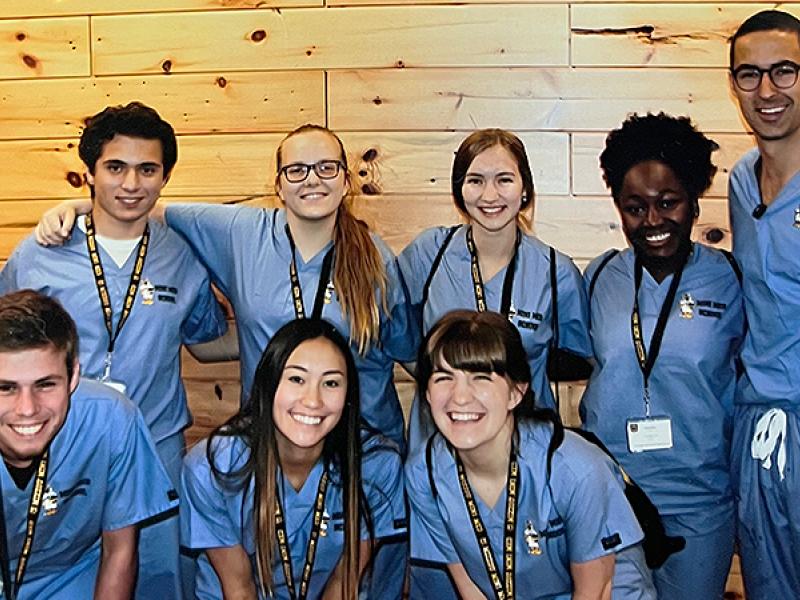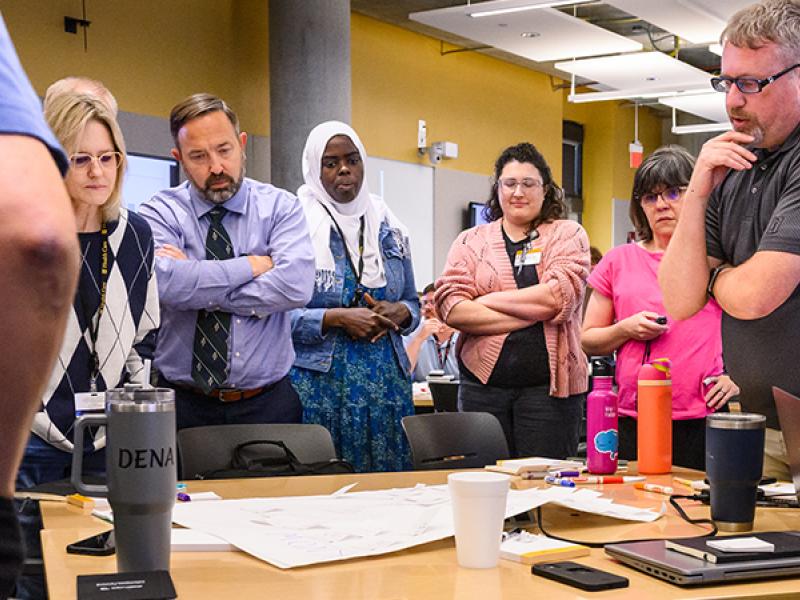The MU School of Medicine’s goal is to create educational experiences that help our graduates — both medical students and residents — attain excellence in the eight characteristics below.
Our graduates are:
Able to deliver effective patient-centered care
Our graduates are able to deliver care that improves the health of individuals and communities.
Effective patient-centered care:
- Respects individual perspectives, beliefs, values and cultures.
- Shares timely, complete, accurate and understandable information to inform health choices.
- Engages each person as he/she prefers, understanding that care choices belong to that individual.
- Partners in decision-making and the delivery of care.
Our graduates are active participants in the creation of policies, programs and environments that promote care that is patient-centered, grounded in the best available evidence, and conserves limited resources. The care they provide is marked by compassion, empathy, cultural humility, and patient advocacy.
Honest with high ethical standards
Our graduates’ behavior reflects honesty in relationships with patients, colleagues and the broader healthcare system. In practice, our graduates understand and adhere to the basic principles of medical ethics, including justice, beneficence, non-malfeasance, and respect for patient autonomy.
Knowledgeable in biomedical sciences, evidence-based practice, and societal and cultural issues
Our graduates possess a fund of knowledge that reflects current understanding in basic biomedical sciences, clinical disciplines, population health, and the social and behavioral sciences that impact patient care.
Critical thinkers and problem solvers
Problem solving and critical thinking engage three interdependent components: knowledge base, processing skills, and insight (metacognition). Building from a strong knowledge base, our graduates seek, synthesize and evaluate information through intellectual curiosity and by questioning the status quo.
Able to communicate with patients and others
Our graduates effectively communicate with patients, families and health care providers in order to establish professional, caring relationships and to facilitate the delivery of high quality, compassionate patient-centered health care.
Able to collaborate with patients and other members of health care team
Our graduates are skilled in the collaborative processes by which patients and inter-professional teams create and implement integrative care plans. They work together through mutual cooperation, respect, exchange of information and meaning, sharing resources, and enhancing each other’s capacity for mutual benefits.
Committed to improving quality and safety
Our graduates work as members of the health care team striving for excellence in the quality of patient care and safety. They assess the results of current practice, analyze the literature to determine best practice, and take action to close any gaps. Our graduates recognize their own limitations and acknowledge their responsibilities in delivering safe and effective care. They problem solve and reconcile errors and near misses. They are committed to proactive systems improvement.
Committed to life-long learning and professional formation
Our graduates are aware that the profession of medicine is a lifelong endeavor. They are committed to reflection, self-assessment and self-improvement. They continually appraise and assimilate evidence to keep abreast of changes in best practice.





